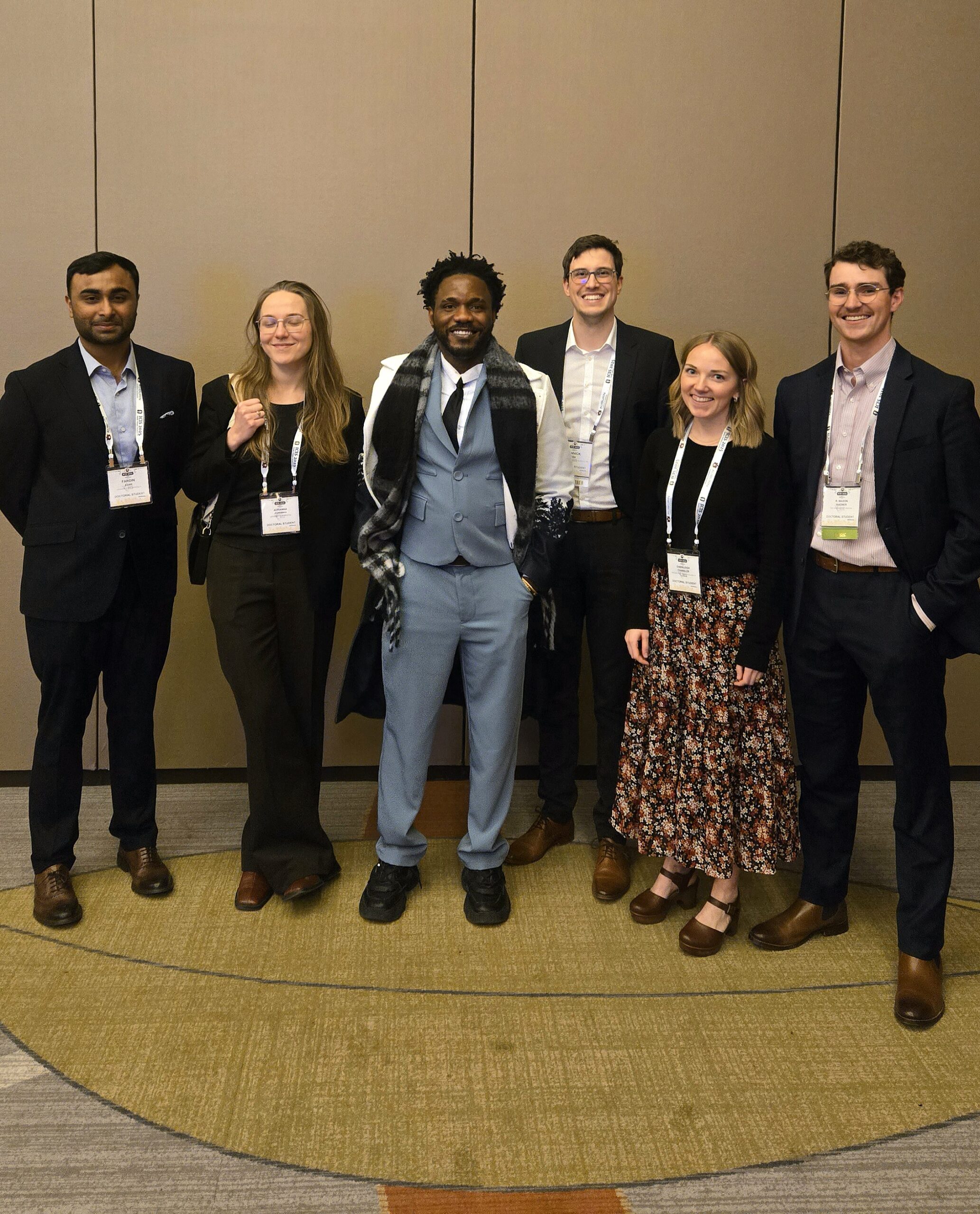Introduction
Formulating a precise and well-defined research question is one of the most critical steps in any research project. It sets the direction for your study, influences your methodology, and ultimately determines the impact of your findings. However, specifying a research question can be challenging, especially when you’re venturing into new or complex areas of study. This guide aims to demystify the process, breaking down concepts into simple terms and providing detailed examples to help you craft a strong research question.
1. Understanding the Types of Research Questions
Research questions generally fall into two main categories based on the issues they address:
- Type 1: Exploratory and Descriptive Questions
- Keywords: What, Who, Where
- Purpose: To explore or describe phenomena when little is known about them.
- Outcome: Provides foundational knowledge and understanding of a new or less-understood topic.
- Type 2: Explanatory Questions
- Keywords: How, Why
- Purpose: To explain the causal mechanisms behind a phenomenon.
- Outcome: Unveils relationships, causes, and effects, providing deeper insights.
Type 1 Questions: Exploratory and Descriptive
These questions aim to gather basic information and establish a solid understanding of a phenomenon. They are particularly useful when researching new or emerging topics where existing information is scarce.
Characteristics:
- Broad Scope: They cover a wide range of aspects to build a comprehensive picture.
- Fact-Finding: Focus on collecting data and facts without necessarily seeking to explain them.
- Foundation Building: Serve as a stepping stone for future explanatory research.
Detailed Examples:
- Public Health:
- Question: What are the common symptoms experienced by patients infected with a new virus?
- Explanation: This question seeks to catalog symptoms to understand the disease’s presentation.
- Technology Adoption:
- Question: Who are the primary users of a newly released social media platform?
- Explanation: Identifies user demographics to understand the platform’s reach and appeal.
- Environmental Studies:
- Question: Where are the most significant deforestation activities occurring in the Amazon rainforest?
- Explanation: Maps out affected areas to assess the extent of deforestation.
Case Study: COVID-19 Early Research
At the onset of the COVID-19 pandemic, scientists faced a novel virus with limited information available. Initial research focused on descriptive questions to gather essential data:
- What is the genetic makeup of SARS-CoV-2 (the virus causing COVID-19)?
- Who is most at risk of severe illness from COVID-19?
- Where did the virus originate, and how is it spreading geographically?
These exploratory questions were crucial for public health officials to develop initial response strategies and for scientists to lay the groundwork for further research.
Type 2 Questions: Explanatory
Once foundational knowledge is established, researchers move on to explanatory questions. These questions delve into the reasons behind observed phenomena, exploring cause-and-effect relationships.
Characteristics:
- Focused Scope: Narrow in on specific aspects to determine relationships.
- Analytical: Seek to understand the underlying mechanisms or reasons.
- Predictive Power: Help in forecasting outcomes based on identified variables.
Detailed Examples:
Psychology:
- Question: How does stress influence cognitive function in adults?
- Explanation: Investigates the causal relationship between stress levels and cognitive performance.
Environmental Science:
- Question: Why do certain plant species thrive in polluted environments?
- Explanation: Explores the adaptations or mechanisms that enable survival in adverse conditions.
Education:
- Question: How does the use of technology in classrooms affect student engagement and learning outcomes?
- Explanation: Examines the impact of technology integration on education quality.
Case Study: COVID-19 Vaccine Development
After understanding the basic characteristics of the virus, researchers focused on explanatory questions to combat the pandemic:
- How does SARS-CoV-2 enter human cells?
- Investigation: Studied the virus’s spike protein and its interaction with the ACE2 receptor.
- Why do some individuals experience severe symptoms while others remain asymptomatic?
- Investigation: Explored factors like immune response, pre-existing conditions, and genetic predispositions.
These explanations were vital for developing effective treatments and vaccines, ultimately saving countless lives.
The Sequential Relationship Between Type 1 and Type 2 Questions
Understanding that exploratory/descriptive research often precedes explanatory research is crucial. You typically need to know what is happening before you can understand why it’s happening.
Example: The Discovery and Understanding of DNA
- Type 1 (Descriptive):
- Discovery: In 1953, James Watson and Francis Crick described the double-helix structure of DNA.
- Impact: Provided a detailed description of the molecule’s physical structure.
- Type 2 (Explanatory):
- Understanding: Researchers then explored how DNA’s structure enables it to store and transmit genetic information.
- Impact: Led to explanations of genetic inheritance, mutation mechanisms, and protein synthesis.
This progression from description to explanation revolutionized biology and medicine.
Aligning Your Research Question with Appropriate Research Methods
The type of research question you pose will guide your choice of research design and methods. Different questions require different approaches to data collection and analysis.
Type 1 Questions:
- Methods:
- Qualitative Approaches: Interviews, focus groups, observations.
- Quantitative Approaches: Surveys, questionnaires, demographic studies.
- Data Collected: Facts, figures, observations that describe the phenomenon.
Type 2 Questions:
- Methods:
- Experimental Designs: Controlled experiments, randomized trials.
- Statistical Analysis: Regression models, correlation studies.
- Longitudinal Studies: Observing subjects over an extended period.
- Data Collected: Evidence that supports or refutes hypotheses about relationships and causality.
Detailed Example: Studying the Impact of Diet on Health
- Type 1 Question: What are the most common dietary habits of adults aged 30-50 in urban areas?
- Method: Conduct surveys to collect data on food consumption patterns.
- Type 2 Question: How does a high-sugar diet affect the risk of developing type 2 diabetes in adults aged 30-50?
- Method: Use longitudinal studies to track dietary intake and health outcomes over time.
Developing Your Research Question: Patience and Flexibility are Key
Crafting a precise research question is an iterative process that may require several revisions. As you delve deeper into your research area, you might find new information that necessitates adjusting your question.
Strategies for Success:
- Continuous Learning: Stay updated with the latest research and developments in your field.
- Reflect and Revise: Regularly assess whether your question still aligns with your research goals.
- Seek Feedback: Discuss your ideas with mentors, peers, or experts to gain new perspectives.
- Embrace Change: Be willing to modify your question if better opportunities for research arise.
Example: Adapting a Research Question
- Initial Question: How effective are online learning platforms in improving student performance?
- After Preliminary Research:
- Finding: Student engagement varies significantly depending on the platform’s features.
- Revised Question: How do interactive features in online learning platforms affect student engagement and performance?
By being flexible, you can refine your question to focus on the most impactful aspects of your research topic.
Structuring Research Questions Hierarchically
Organizing your research questions hierarchically can provide clarity and direction, ensuring that each question builds upon the previous one.
Hierarchy Levels:
Managerial Question
- Definition: The overarching issue or problem driving the research.
- Purpose: Addresses the needs or concerns of stakeholders.
- Example: How can our company increase customer loyalty?
Research Question
- Definition: A more specific question derived from the managerial question.
- Purpose: Translates the broad issue into a researchable problem.
- Example: What factors influence customer loyalty to our brand?
Investigative Questions
- Definition: Specific queries that need to be answered to address the research question.
- Purpose: Breaks down the research question into manageable parts.
- Examples:
- How does product quality affect customer loyalty?
- What is the impact of customer service on repeat purchases?
- Does brand image influence customer retention?
Case Study: Improving Employee Satisfaction
- Managerial Question: Why is employee turnover high in our organization?
- Research Question: What factors contribute to high employee turnover in our company?
- Investigative Questions:
- Is compensation a significant factor in employee turnover?
- How does workplace culture affect employee retention?
- What role does career development opportunities play in employee satisfaction?
By structuring questions this way, you ensure a logical flow and comprehensive coverage of the topic.
Practical Steps to Specify Your Research Question
Step 1: Identify the Broad Problem Area
Begin by understanding the general area of interest and its significance.
- Action: Read widely on your topic to grasp the key issues and debates.
- Example: Recognize that cybersecurity is a critical concern for businesses worldwide due to increasing cyber threats.
Step 2: Narrow Down to a Specific Issue
Focus on a particular aspect that is both manageable and significant.
- Action: Identify gaps or under-researched areas within the broad topic.
- Example: Notice that small businesses often lack robust cybersecurity measures compared to larger corporations.
Step 3: Review Existing Literature
Assess what has already been studied to pinpoint where your research can contribute.
- Action: Conduct a thorough literature review using academic databases.
- Example: Find that while technical solutions are available, there’s little research on the awareness and attitudes of small business owners toward cybersecurity.
Step 4: Formulate Your Research Question
Craft a clear, focused question based on your findings.
- Action: Ensure the question is specific, researchable, and significant.
- Example: How do small business owners perceive cybersecurity risks, and how does this perception influence their adoption of protective measures?
Step 5: Define Investigative Questions
Break down your main question into smaller, manageable parts.
- Action: Develop sub-questions that address different facets of the main question.
- Examples:
- What is the level of awareness among small business owners about cybersecurity threats?
- What barriers prevent small businesses from implementing cybersecurity measures?
- How does the cost of cybersecurity solutions affect adoption rates?
Ensuring Your Research Question is Effective
An effective research question serves as a strong foundation for your study. Here’s how to ensure yours meets the necessary criteria:
Attributes of an Effective Research Question:
- Clarity and Specificity: The question should be easily understandable and unambiguous.
- Researchability: It must be possible to answer the question through data collection and analysis.
- Significance: The question should address an important issue or gap in knowledge.
- Complexity: It should require analysis and synthesis, not just a simple factual answer.
- Feasibility: Consider time constraints, resources, and access to data.
Checklist to Evaluate Your Research Question:
Alignment with Field:
- Does the question fit within your discipline or area of study?
- Example: A question about social media’s impact on mental health aligns with psychology and sociology.
Grounded in Literature:
- Is the question informed by existing research and theories?
- Example: Building on previous studies about social media usage patterns.
Addresses a Gap:
- Does it seek to fill a void or resolve inconsistencies in the current knowledge?
- Example: Investigating the impact of a new social media platform not previously studied.
Researchable with Available Methods:
- Can you collect and analyze the necessary data?
- Example: Accessing user data through surveys or social media analytics tools.
Contributes Value:
- Will answering the question provide valuable insights or practical applications?
- Example: Helping develop strategies to mitigate negative mental health effects.
Detailed Examples of Well-Specified Research Questions
Example 1: Environmental Policy
- Topic: Plastic Pollution in Oceans
- Broad Problem Area: The increasing amount of plastic waste contaminating marine ecosystems.
- Specific Issue: Microplastics’ impact on marine life.
- Existing Literature: Studies have documented the presence of microplastics but less is known about their effects on specific species.
- Research Question: How do microplastics affect the reproductive health of marine fish species?
- Investigative Questions:
- What levels of microplastic exposure are marine fish experiencing?
- Are there observable changes in fertility rates among affected fish populations?
- What physiological changes occur in fish due to microplastic ingestion?
- Significance: Findings could inform policies to reduce plastic pollution and protect marine biodiversity.
Example 2: Business Management
- Topic: Remote Work Productivity
- Broad Problem Area: Shift to remote work due to technological advancements and recent global events.
- Specific Issue: Impact of remote work on team collaboration.
- Existing Literature: Mixed results on productivity, with limited focus on collaboration dynamics.
- Research Question: How does remote work influence team collaboration and productivity in software development companies?
- Investigative Questions:
- What collaboration tools are teams using, and how effective are they?
- Do remote teams experience more challenges in communication compared to in-office teams?
- How does remote work affect project completion times and quality?
- Significance: Insights can help organizations optimize remote work strategies to maintain or enhance productivity.
Adapting When Challenges Arise
Research rarely goes exactly as planned. Being prepared to adapt is essential for overcoming obstacles.
Common Challenges and Solutions:
- Data Availability Issues:
- Challenge: Unable to access the required data due to privacy concerns or lack of response.
- Solution: Adjust your question to focus on data you can access or consider a different methodological approach.
- Scope Too Broad or Narrow:
- Challenge: Realizing that the question is unmanageable or doesn’t allow for sufficient analysis.
- Solution: Refine the question by narrowing or broadening the focus appropriately.
- Changing Research Landscape:
- Challenge: New developments render your question less relevant.
- Solution: Update your question to reflect the latest trends or pivot to a more pertinent aspect.
Example:
- Initial Research Question: How effective are traditional marketing strategies in the age of social media?
- Challenge: The rapid rise of influencer marketing changes the landscape.
- Adapted Research Question: How does influencer marketing impact consumer purchasing decisions compared to traditional marketing strategies?
Conclusion
Specifying your research question is a foundational and iterative process that requires careful thought, thorough understanding of your field, and flexibility to adapt as needed. By distinguishing between exploratory/descriptive and explanatory questions, aligning your methods accordingly, and structuring your questions effectively, you lay a solid groundwork for your research project.
Remember, a well-crafted research question not only guides your study but also communicates its importance and relevance to others. It serves as a beacon that keeps your research focused and meaningful.
Final Thought
Embarking on a research journey is both exciting and challenging. Take the time to thoughtfully develop your research question, and don’t hesitate to seek guidance and make adjustments along the way. With persistence and careful planning, you’ll contribute valuable knowledge to your field and achieve your research goals.
Additional Resources
- Books:
- Research Design: Qualitative, Quantitative, and Mixed Methods Approaches by John W. Creswell
- The Craft of Research by Wayne C. Booth, Gregory G. Colomb, and Joseph M. Williams
- Online Courses:
- Coursera’s Research Proposal: Initiating Research course
- edX’s Introduction to Research Methods course
- Workshops and Tutorials:
- University writing centers often offer workshops on formulating research questions.
- Professional organizations in your field may provide webinars or seminars.
By leveraging these resources and applying the guidance provided in this guide, you’ll be well-equipped to specify a strong and impactful research question.










Leave a Reply